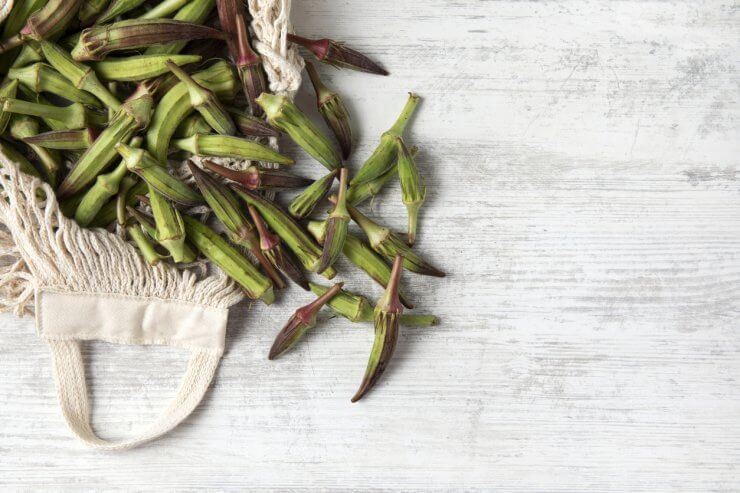
Healthful Okra
The nutrients in okra pack a healthy punch! Rich in antioxidants and plant compounds, they can protect your heart, reduce bad (LDL) cholesterol, protect against cancer, and help control blood sugar.
Here are some of the ways okra can contribute to good health.
Heart and brain health
The antioxidants in okra may contribute to better heart health by reducing the risk of blood clots. The antioxidants in okra may also help reduce the risk of brain inflammation.
That slimy consistency of okra may actually turn out to be a health benefit. One study found that the thick mucilage in okra can bind with cholesterol in the body during digestion and help clear it out.
Okra may also:
- improve blood antioxidant status
- decrease oxidative stress
- reduce inflammation
- improve vascular function
- lower the risk of heart disease and stroke
- help reduce fatigue
Blood sugar regulation
A number of studies indicate that okra may help prevent the body from absorbing sugar during the digestive process; good news for folks with diabetes, or anyone trying to avoid blood sugar spikes. But people with diabetes should consult their doctor before adding more okra to their diet. The compounds in okra can interfere with the medication metformin, often used to treat Type 2 diabetes.
Cancer prevention
Antioxidants help fight free radicals in our bodies—those molecules that, if left to roam, can wreak havoc on our systems. The antioxidants in okra, including vitamins A and C, are terrific at wrangling free radicals.
Okra also contains lectin, a protein that may inhibit the growth of cancer cells. Research is underway to determine if the antioxidant compounds in okra have sufficient cancer-fighting cells to help in the treatment of breast cancer. One study showed that concentrated compounds from okra inhibited the growth of breast cancer cells.
Osteoporosis
Vitamin K is a key component in bone formation and blood clotting. The vitamin K in okra may help strengthen your bones and prevent bone fractures. Okra also contains calcium—another key element in bone health.
Prenatal support
Folate is an essential nutrient for pregnant women; without it, they run the risk of the baby developing neural tube defects, such as spina bifida. Prenatal vitamins include this critical component, but you can also get 15% of your daily value of folate from 1 cup of okra.
Folk uses of okra
For centuries, people have used okra as a folk remedy to treat a number of maladies, including: digestive issues, kidney stones, and diabetes. One of the common forms is okra chips.
Okra chips are made by dehydrating okra. Now, some of the vitamin C gets lost in the dehydration process, but most of the other nutrients remain intact—in fact, when you dehydrate okra, the nutrients get more concentrated. Okra chips can make for a healthy, low-calorie, crunchy snack in place of chips, cookies, or crackers.
You can buy okra chips at the store, but buyer beware: there are going to be additional ingredients to improve flavor or extend shelf life that you won’t get if you just make your own at home.
Don’t have a dehydrator? No problem! You can easily dehydrate your okra in the oven. Set it to the lowest heat setting possible. Slice the okra into little wagon wheels and spread them out in a single layer on a parchment-lined baking sheet. It could take four to eight hours for your okra to fully dehydrate, so you’ll need to check on it regularly. Turn the whole sheet after a few hours to ensure equal heat distribution.
Once the okra is completely dry, let it cool. Then store it in an airtight container, away from the light. You can eat it as a healthy snack, or use it to cook in soups or stews. However you snack on it, you know it’s healthy!
Other folk uses of okra include:
- Okra juice to treat a sore throat, diarrhea, and stomach ache
- Okra juice to relieve itchy skin and act as a moisturizer
- Okra leaves and roots ground up to use as a poultice for wounds
Did you know that okra can be so healthful? Please tell us about healthy ways you use okra.


 Previous
Previous

